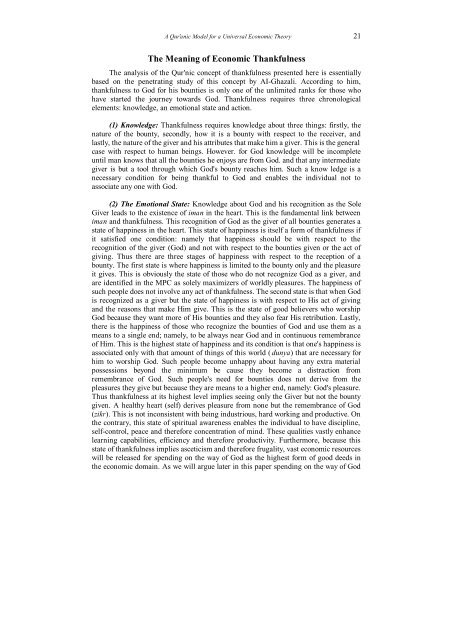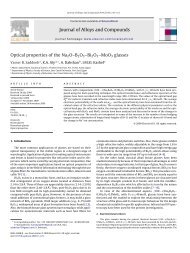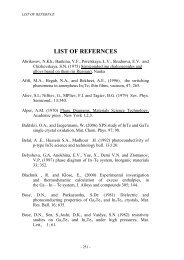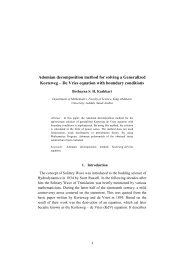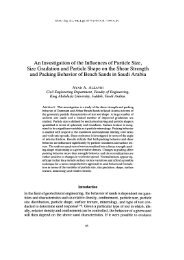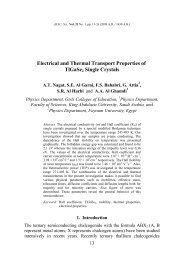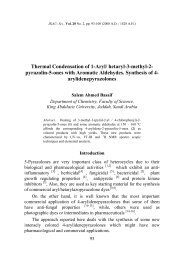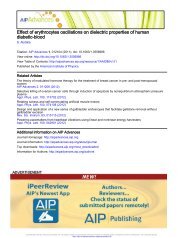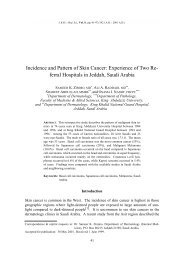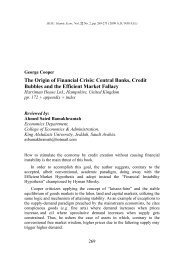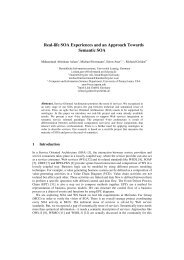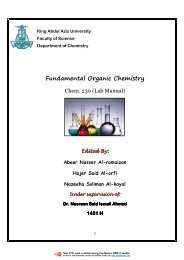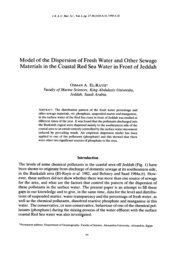A Qur'anic Model for a Universal Economic Theory
A Qur'anic Model for a Universal Economic Theory
A Qur'anic Model for a Universal Economic Theory
You also want an ePaper? Increase the reach of your titles
YUMPU automatically turns print PDFs into web optimized ePapers that Google loves.
A Qur’anic <strong>Model</strong> <strong>for</strong> a <strong>Universal</strong> <strong>Economic</strong> <strong>Theory</strong> 21<br />
The Meaning of <strong>Economic</strong> Thankfulness<br />
The analysis of the Qur'nic concept of thankfulness presented here is essentially<br />
based on the penetrating study of this concept by AI-Ghazali. According to him,<br />
thankfulness to God <strong>for</strong> his bounties is only one of the unlimited ranks <strong>for</strong> those who<br />
have started the journey towards God. Thankfulness requires three chronological<br />
elements: knowledge, an emotional state and action.<br />
(1) Knowledge: Thankfulness requires knowledge about three things: firstly, the<br />
nature of the bounty, secondly, how it is a bounty with respect to the receiver, and<br />
lastly, the nature of the giver and his attributes that make him a giver. This is the general<br />
case with respect to human beings. However. <strong>for</strong> God knowledge will be incomplete<br />
until man knows that all the bounties he enjoys are from God. and that any intermediate<br />
giver is but a tool through which God's bounty reaches him. Such a know ledge is a<br />
necessary condition <strong>for</strong> being thankful to God and enables the individual not to<br />
associate any one with God.<br />
(2) The Emotional State: Knowledge about God and his recognition as the Sole<br />
Giver leads to the existence of iman in the heart. This is the fundamental link between<br />
iman and thankfulness. This recognition of God as the giver of all bounties generates a<br />
state of happiness in the heart. This state of happiness is itself a <strong>for</strong>m of thankfulness if<br />
it satisfied one condition: namely that happiness should be with respect to the<br />
recognition of the giver (God) and not with respect to the bounties given or the act of<br />
giving. Thus there are three stages of happiness with respect to the reception of a<br />
bounty. The first state is where happiness is limited to the bounty only and the pleasure<br />
it gives. This is obviously the state of those who do not recognize God as a giver, and<br />
are identified in the MPC as solely maximizers of worldly pleasures. The happiness of<br />
such people does not involve any act of thankfulness. The second state is that when God<br />
is recognized as a giver but the state of happiness is with respect to His act of giving<br />
and the reasons that make Him give. This is the state of good believers who worship<br />
God because they want more of His bounties and they also fear His retribution. Lastly,<br />
there is the happiness of those who recognize the bounties of God and use them as a<br />
means to a single end; namely, to be always near God and in continuous remembrance<br />
of Him. This is the highest state of happiness and its condition is that one's happiness is<br />
associated only with that amount of things of this world (dunya) that are necessary <strong>for</strong><br />
him to worship God. Such people become unhappy about having any extra material<br />
possessions beyond the minimum be cause they become a distraction from<br />
remembrance of God. Such people's need <strong>for</strong> bounties does not derive from the<br />
pleasures they give but because they are means to a higher end, namely: God's pleasure.<br />
Thus thankfulness at its highest level implies seeing only the Giver but not the bounty<br />
given. A healthy heart (self) derives pleasure from none but the remembrance of God<br />
(zikr). This is not inconsistent with being industrious, hard working and productive. On<br />
the contrary, this state of spiritual awareness enables the individual to have discipline,<br />
self-control, peace and there<strong>for</strong>e concentration of mind. These qualities vastly enhance<br />
learning capabilities, efficiency and there<strong>for</strong>e productivity. Furthermore, because this<br />
state of thankfulness implies asceticism and there<strong>for</strong>e frugality, vast economic resources<br />
will be released <strong>for</strong> spending on the way of God as the highest <strong>for</strong>m of good deeds in<br />
the economic domain. As we will argue later in this paper spending on the way of God


